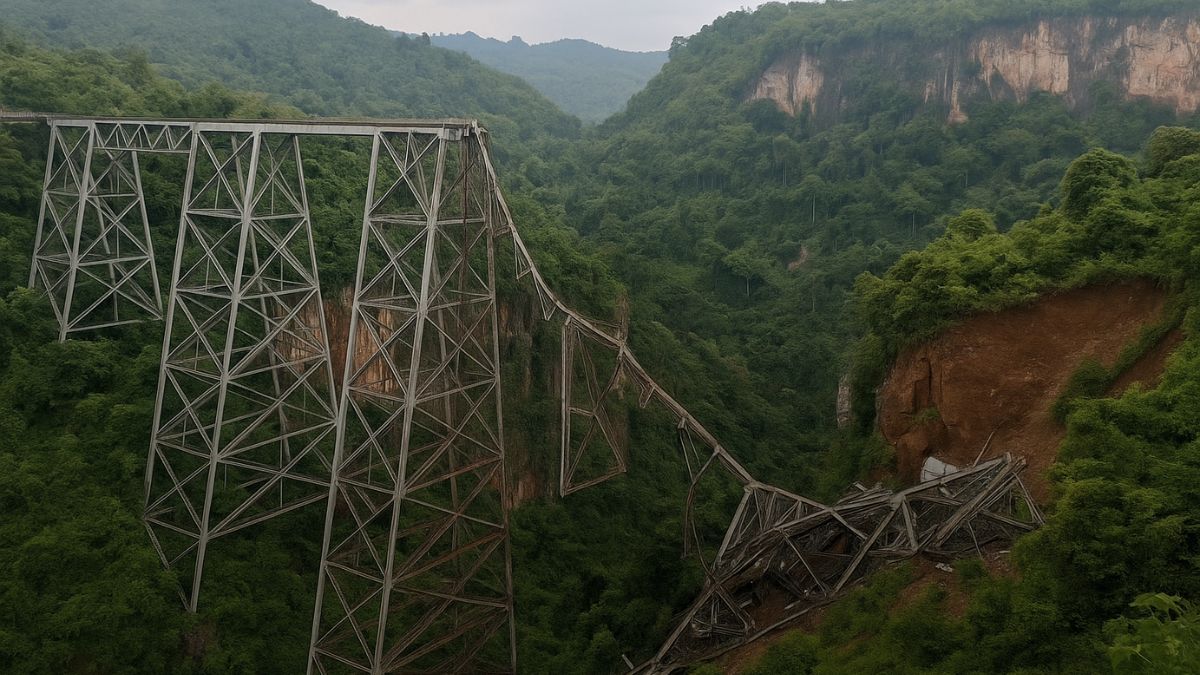The Gokteik bridge, built in 1901 during British colonial rule, spanned 300 metres and towered 102 metres above a gorge in Shan State. It formed a critical section of the Mandalay–Lashio railway and was also a tourist attraction. Videos shared on social media on Sunday showed the bridge partially collapsed and twisted from damage.
Who is being blamed for the destruction?
Both sides in Myanmar’s war are pointing fingers. The ruling junta said rebel groups — including the Ta’ang National Liberation Army (TNLA) and people’s defence forces — planted explosives and “bombed and destroyed” the bridge. A separate junta statement claimed mines were used in the attack.
The TNLA, however, rejected the accusation, instead blaming the military. A TNLA spokesperson said the junta had been attempting drone strikes against their bases, but one of the bombs hit the bridge.
Fighting between the army and TNLA has intensified in recent weeks, especially around Nawnghkio and Kyaukme towns, close to the bridge’s location.
Why is the bridge important?
The Gokteik bridge was regarded as an engineering marvel when it opened, holding the title of the world’s tallest trestle bridge at the time. It connected central Myanmar to the country’s north-eastern regions and symbolised colonial-era infrastructure still in use.
Its destruction is both a symbolic and practical loss: it removes a key transport link and erases one of the few surviving historical structures that attracted tourists despite Myanmar’s instability.
What is the wider context?
Myanmar has been engulfed in conflict since the military ousted the civilian government in 2021, sparking a nationwide armed uprising. The junta faces resistance from pro-democracy fighters and ethnic armed organisations, many of whom operate in the country’s borderlands.
The military has announced elections for December, which opposition groups are boycotting and international observers have criticised as lacking credibility. Analysts believe rebel groups will escalate offensives around the polls as a form of protest.
